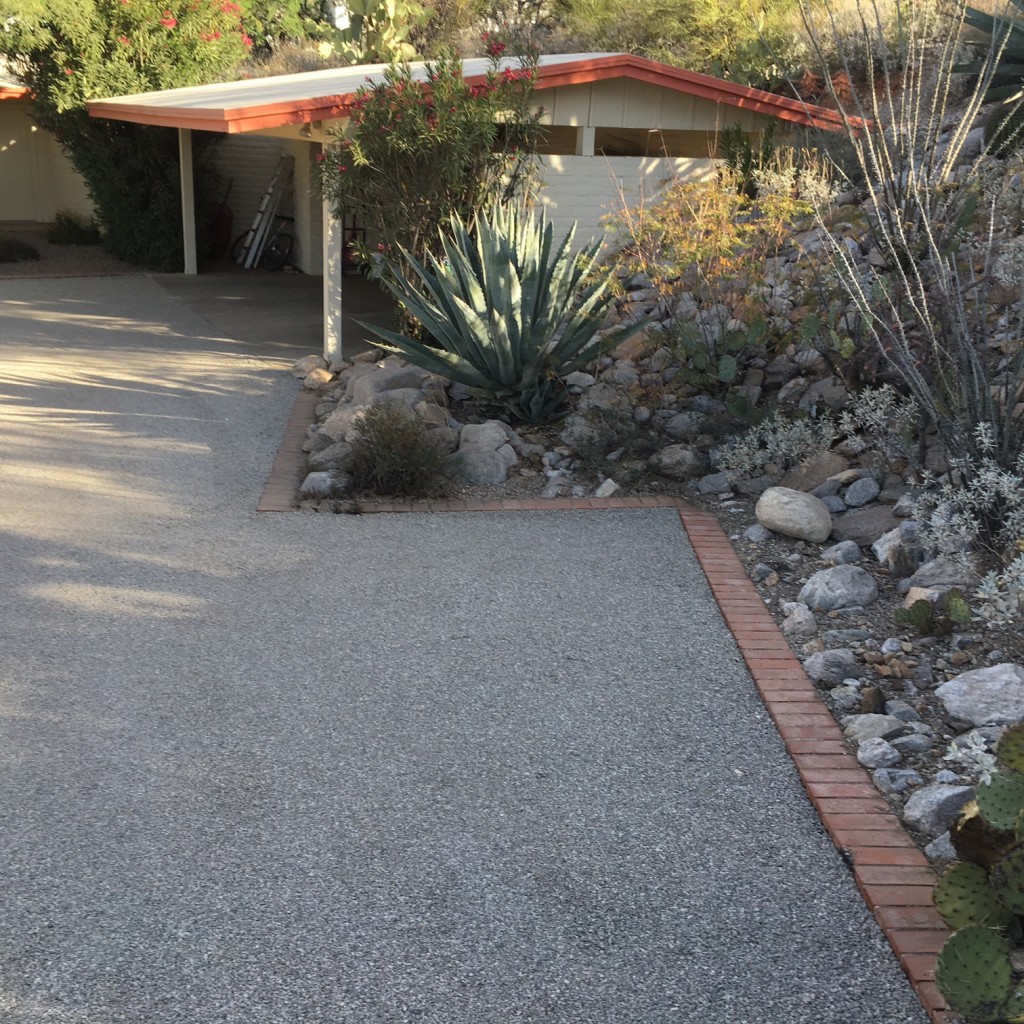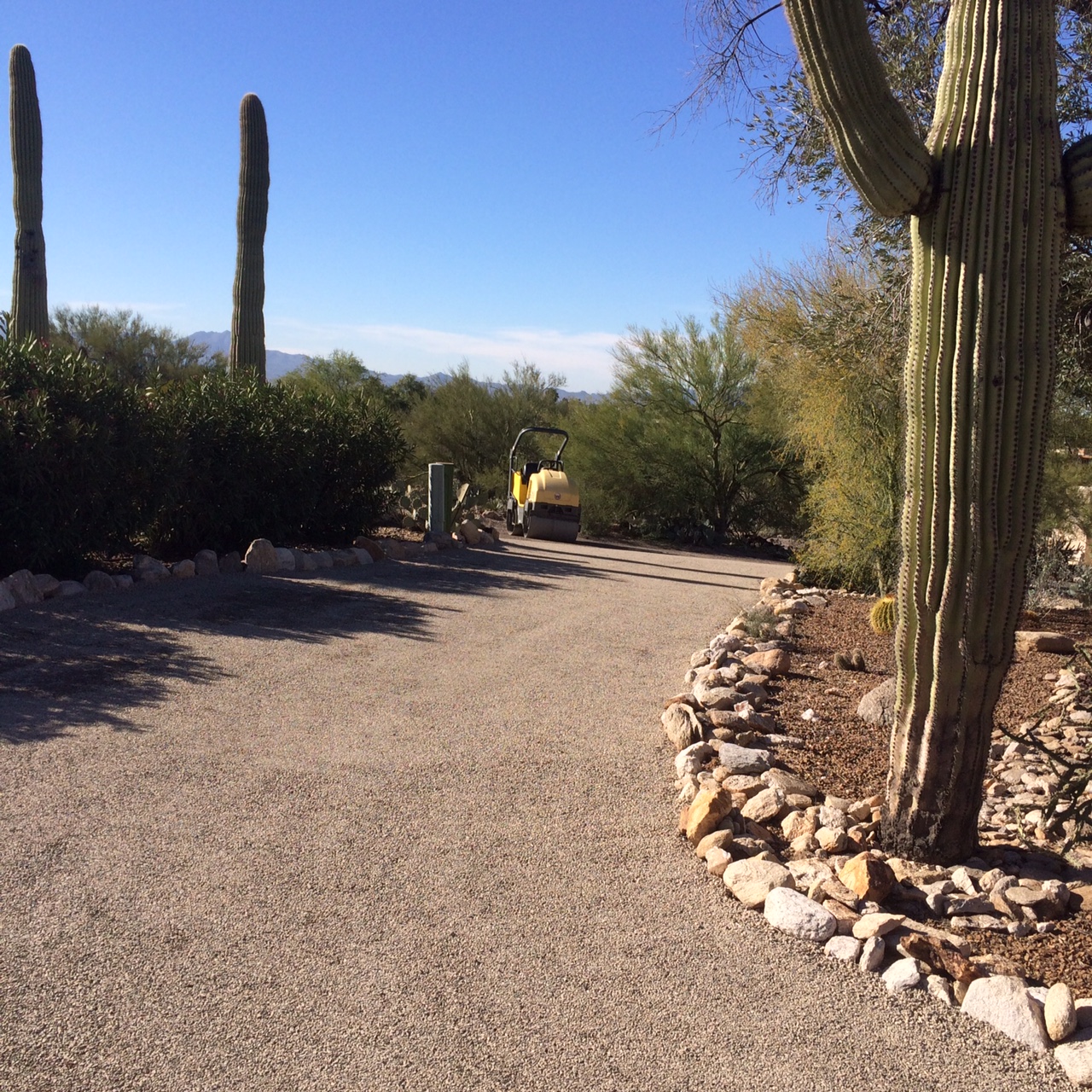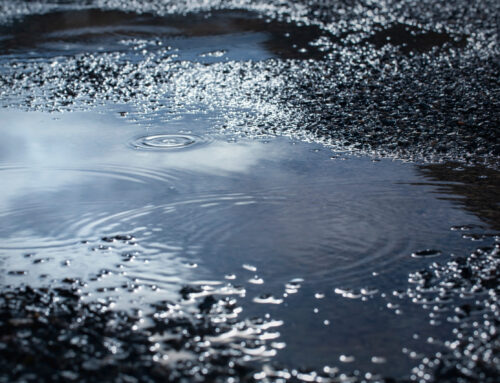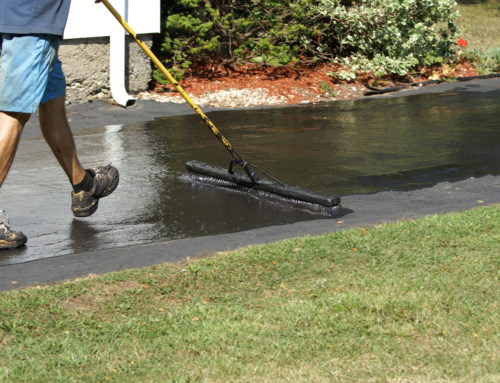In the asphalt industry, there are a number of different materials, tools, and techniques to pave roads, lots, and driveways. Just like any other project or work, half of it is knowing and having the right tool for the job. One such tool in our toolbelt is the process of chip seal paving. Let’s talk about it, shall we?
Chip Seal Paving
Chip seal (sometimes called chipseal ((no space))) is a pavement surface treatment that combines one or more layer(s) of asphalt and fine aggregate material. Where standard asphalt will use a mix of different size aggregate, chip seal uses one standard, small size. Oil and pea gravel are placed down separately and then compacted together using a roller. It has been used for over 100 years in paving roads and parking lots.

Chip seal driveway completed by Sunrise
How Chip Seal is Installed
First, oil is heated by a distributor truck and then applied to the base. Then, using a spreader box, the crew lays down the pea gravel. Once the oil is completely covered with gravel, a roller is used to compact the pea gravel into the hot oil. Bing, bang, boom – it is that easy!
Where and Why Chip Seal is Used
Here in the US, chip seal paving is usually done in more rural areas, where the roads have less traffic wearing it down. But it can also be installed anywhere someone wants a simple, sturdy option for a hard surface for traffic. It is water-resistant, and the rough surface also makes for a more skid-resistant surface for driving in wet conditions.
It is also used wherever anyone wants a lower cost asphalt option. Chip seal typically costs less than the same square footage of traditional asphalt. It also won’t need seal coating every few years like traditional asphalt.
Chip Seal Considerations
So it’s cheaper and doesn’t need seal coating, what’s the catch you ask? Well, it isn’t all sunshine and rainbows with chip sealing. Just like anything else, there are pros and cons to using it. For one, the chip seal typically lasts between 5-8 years depending on the slope and number of layers used. That’s still a great lifespan but isn’t as long as other options. Chipseal also has a rougher surface than most asphalt, generating more roadway noise.
The other con to be aware of is the potential for damage if installed improperly. Loose crushed stone can often be left behind, either due to an overuse of stone or an under application of oil. This is avoidable and at Sunrise Asphalt we do the job right, applying the proper mix of oil and gravel as well as making sure any remainder is cleared away. If not handled, loose gravel can cause problems like cracked windshields or chipped paint when vehicles pass over.
Interested in trying out chip seal for your asphalt surfaces? Have chip seal already and are looking to upgrade? Whatever the job, Sunrise Asphalt has the tools, techniques, and experience to get it done right. Give us a call today or fill out our form and get a free estimate and Sunrise Asphalt will be ready to meet your needs in no time.




